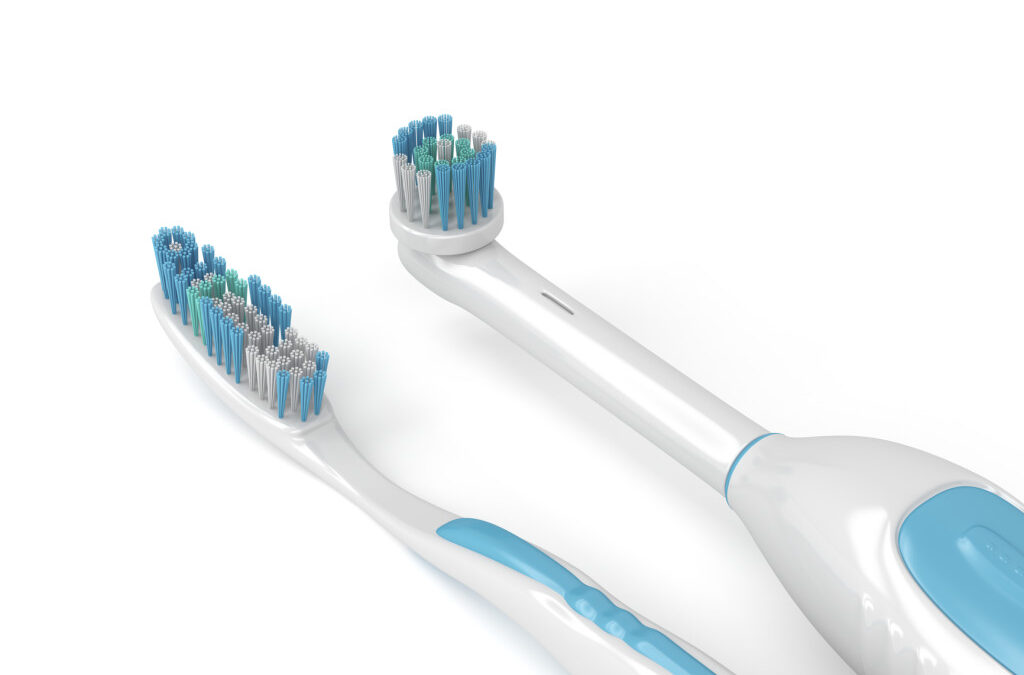The key to keeping your teeth and gums clean and healthy is to prevent plaque from building up so, if your toothbrush is past its best, or you’re thinking of switching from a regular toothbrush to an electric one, we can help you choose the best brush for keeping your teeth and gums clean and healthy. With so many shapes, sizes and styles available choosing the right toothbrush can seem confusing, do you go for electric or normal? Do you go for a soft, medium or hard bristle brush? So to help you out we have come up with some handy tips on what to look for when selecting the perfect brush for you.
1. Soft, Medium or Hard? Most dental professionals will agree that a soft-bristled brush is best for removing plaque and debris from your teeth, and a soft bristle brush will not cause irritation of your gums as a harder bristle brush could do. So we advise that you stick to a soft brush in less your dentist has advised you otherwise.
2. Small or Big? It’s also important to think about the size of the head of your brush. A big headed brush won’t allow you to get to those hard-to-reach places so we recommend that you use a small head which will allow you to get to give your whole mouth a better clean.
3. What type of handle? As for the type of handle, go for whatever suits you. Everyone holds objects differently and you need to be able to grip your brush comfortably. Most brushes whether manual or electric will have some form of non-slip grips on them to help with handling but remember that some electric toothbrushes can be rather large and heavy so before you buy just do a bit of research on-line where you can find out the specifications of all electric toothbrushes including their weight and size.
4. Manual or electric? This really is a personal choice although bear in mind that an electric toothbrush can do a better job of removing plaque and giving your teeth a better clean. An electric toothbrush is also a great idea for those who maybe find it difficult to brush their teeth through mobility issues and lack of dexterity.
5. How Often Should I Replace My Toothbrush? You should replace your toothbrush or head if you have an electric toothbrush, when it begins to show wear, or every three months, whichever comes first. It is also very important to change toothbrushes after you’ve had a cold, since the bristles can collect germs that can lead to re-infection.
If you have an questions or queries regarding your toothbrush or your dental routine then contact your dentist for more information.

